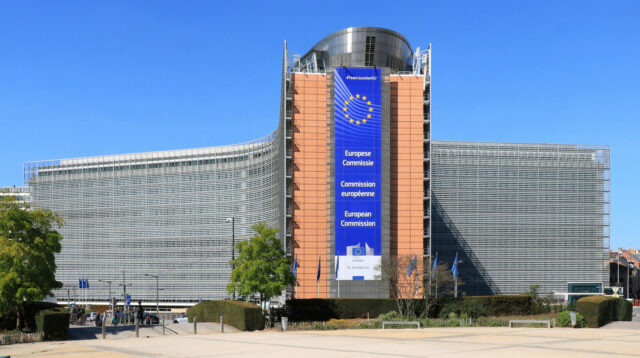The European Commission has begun canvassing the region’s semiconductor industry for its opinion on China’s expanded production of older generation computer chips.
The Commission, the EU executive, has sought feedback ahead of two voluntary surveys for the chip industry and major chip-using industrial firms, due in September.
The EU executive had no immediate comment when contacted by Reuters.
It is unclear what action will result from the study but tensions between Brussels and Beijing are already rising as the European Union seeks to protect its industries from Chinese competition.
The Commission on Friday began imposing provisional tariffs of up to 37.6% on Chinese electric vehicles.
Trade analysts say the tariffs could be just the beginning of a toughened EU stance towards Beijing.
Chinese industry is investing heavily in expanding production of older chips, known as legacy chips, with help from state subsidies. That’s in part because U.S.-led restrictions limit its access to buying or making more advanced computer chips.
In the short run, China’s investment will reduce its dependence on foreign chips but Western governments are worried about the long-term implications, including potential oversupply of the chips needed for countless appliances and cars.
The Commission’s antitrust chief Margrethe Vestager indicated in April the executive might investigate legacy chips after a meeting in Belgium with U.S. officials.
In April, the Commission released a 712-page report on the many layers of support it says the Chinese government provides to domestic firms.
The report included research into a wider range of industries including semiconductors, telecom equipment and renewable energy.
It is understood that the new chip-focused surveys are a fact-finding mission, broader in scope than a security-focused survey sent by the U.S. Department of Commerce to U.S. firms.
The Commission has sought feedback on draft questions including where industrial firms source their chips. It is seeking information on chip firms’ products and pricing, and estimates of the same information from their competitors, including their Chinese competitors.
For equipment suppliers such as Europe’s biggest tech firm ASML ASML.AS, China’s expansion of legacy chip production is an important source of revenue that mitigates U.S.-led export restrictions on more advanced technology.
For chipmakers such as Infineon IFXGn.DE of Germany, STMicroelectronics STMPA.PA of France and NXP NXPI.O of the Netherlands, the picture is mixed: all are important makers of chips for cars and for electrical infrastructure. They face increasing Chinese competition, but also do business in China.
Europe’s industrial, aerospace, automotive, health-tech and energy firms may be reluctant to disclose their use of Chinese legacy chips. They may also be uncertain where the chipsets they use are made, given the cross-border, multi-step nature of chipmaking and packaging.
German carmakers are opposed to tariffs on Chinese EVs, given their significant sales in China.
They have sought to diversify their chip suppliers to include production inside and outside China and Taiwan after costly shortages during the COVID-19 pandemic.
(With Inputs From Reuters)
Delhi based journalist pickled in journalism. Have reported from nine world capitals and almost all parts of India. Over the last three decades, I have worked for India’s mainstream English dailies and contributed to All India Radio, Doordarshan and Women’s Feature Service. Also worked for international media including Japan’s leading newspaper, The Asahi Shimbun and done assignments for The Sunday Times, London, The Telegraph, The Guardian and the Canadian Broadcasting Corporation. Worked in the Embassy of France in New Delhi and can speak French to save my life. Write on Diplomacy, Politics and the social sector. Love Nature, heritage, Nature, animals and vintage cars. Enjoy cycling and playing badminton.





